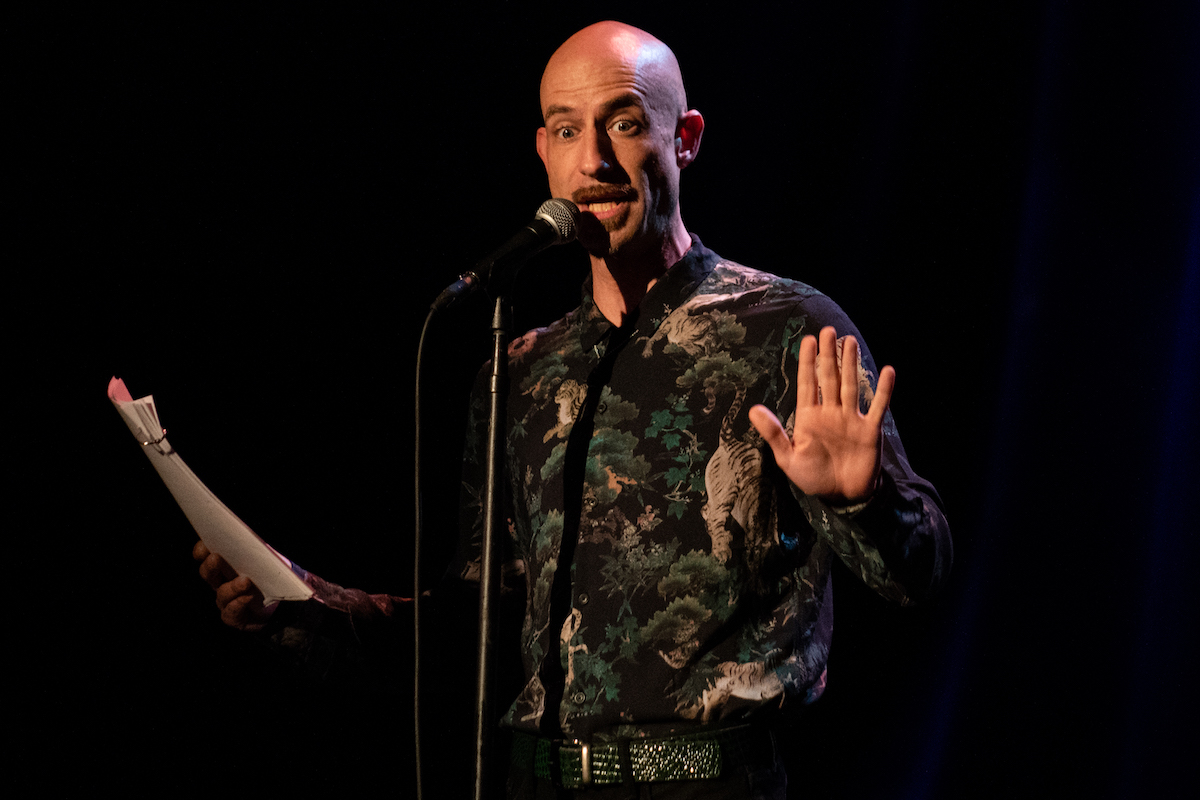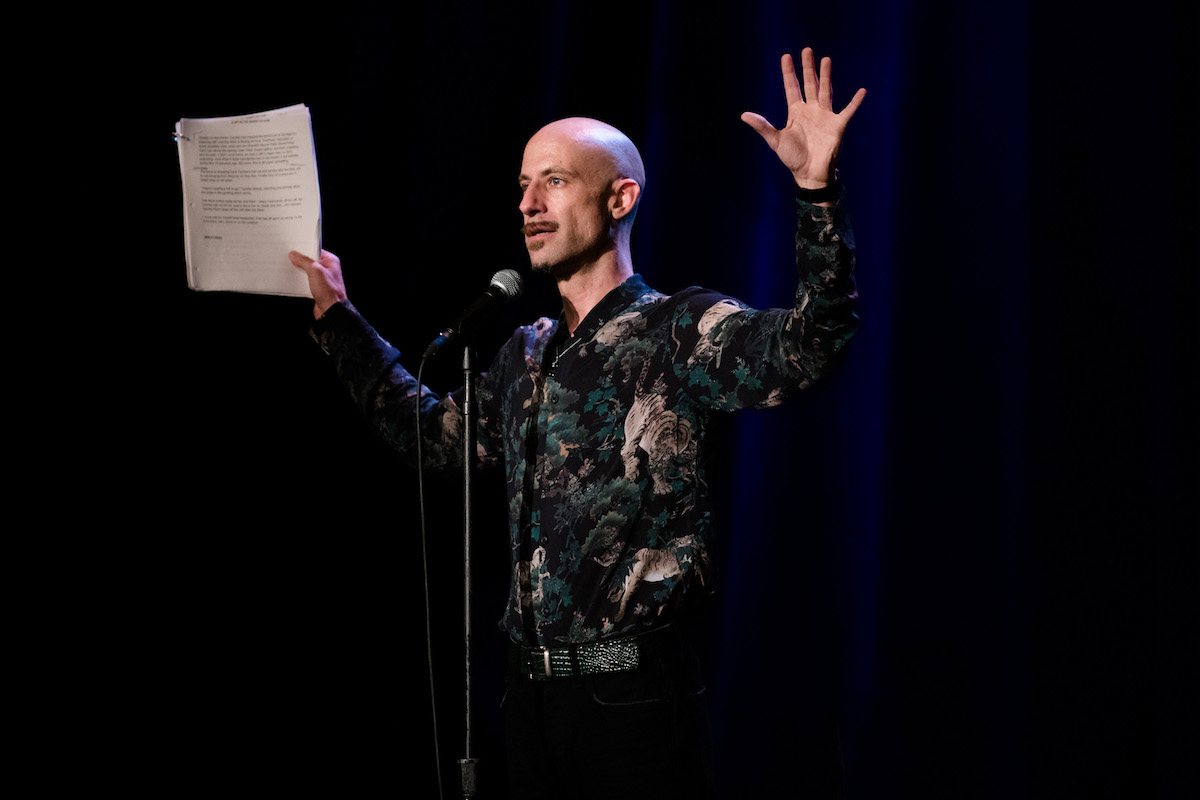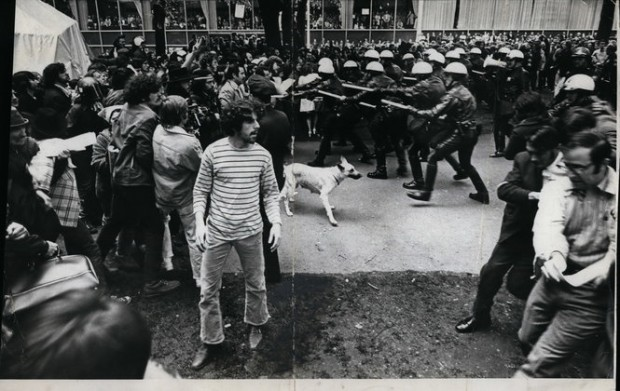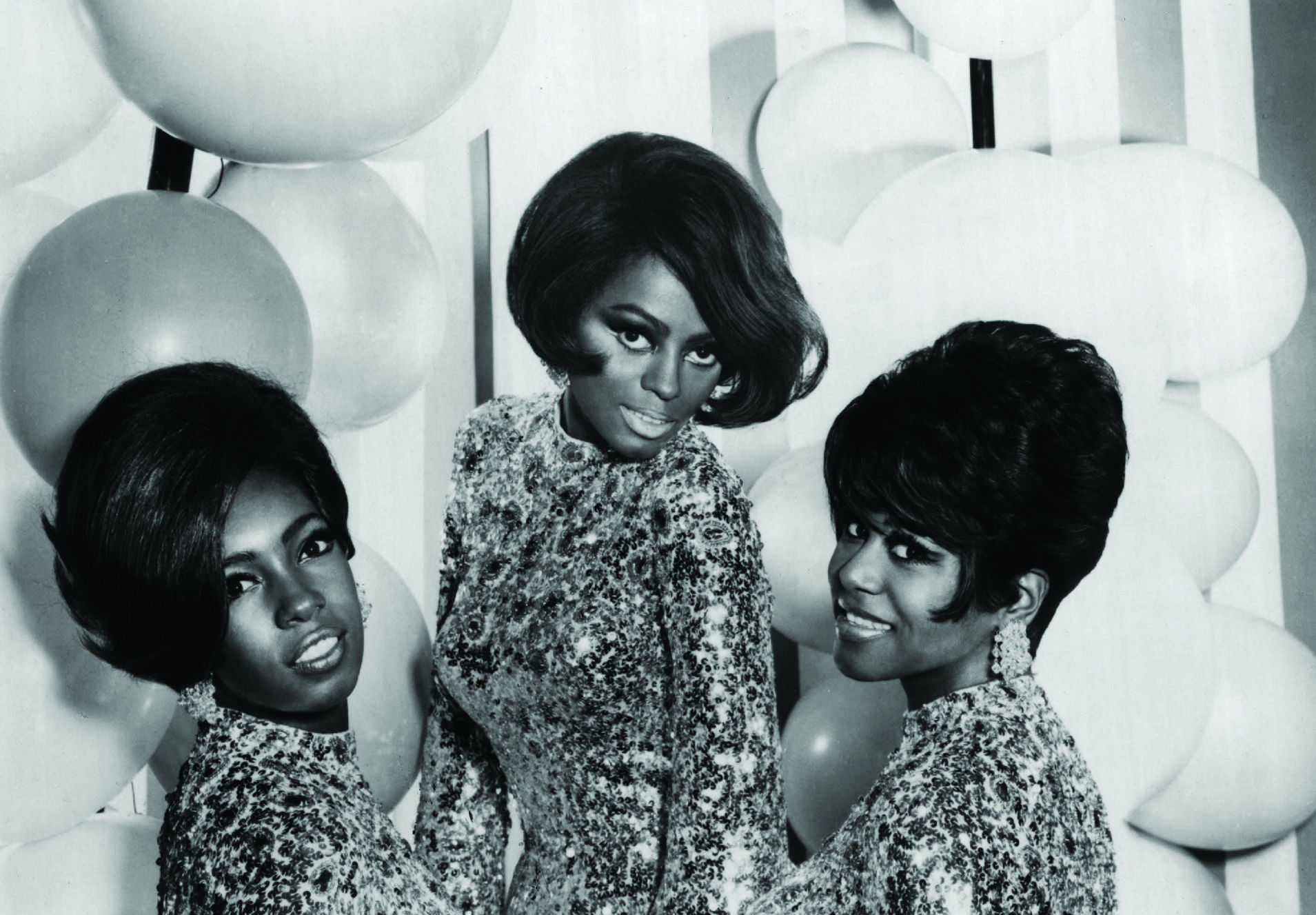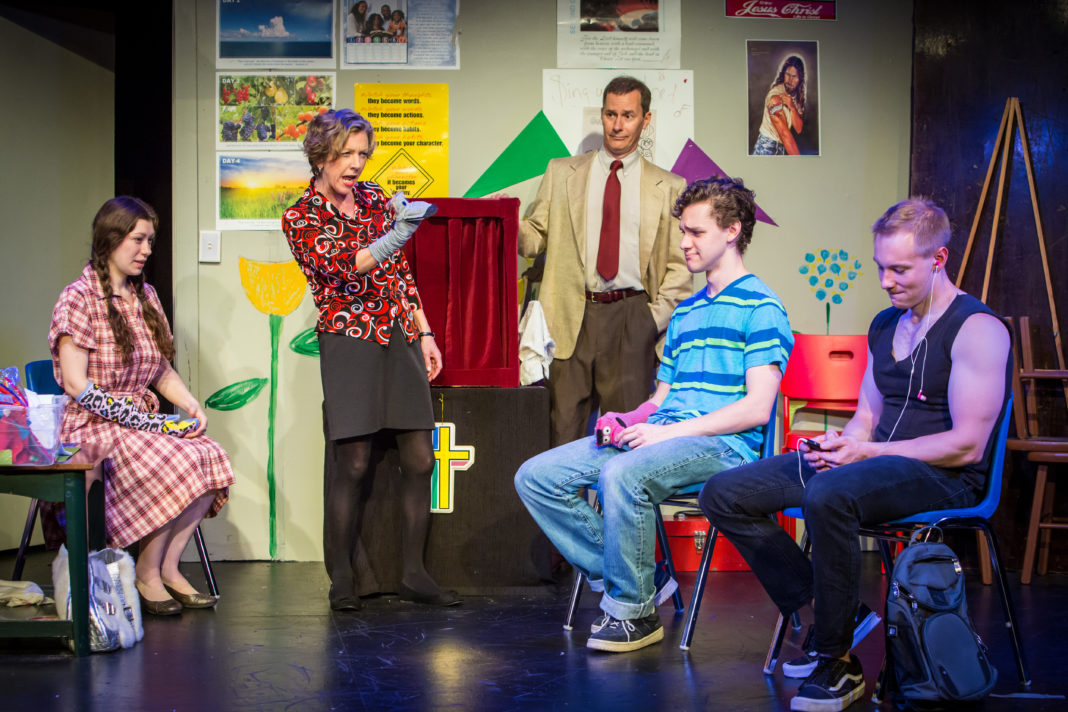Welcome to Night Vale, a serial podcast with a global cult following, came to Portland, Oregon last week for a live show at Revolution Hall. Delivered in the style of a community radio program, the podcast has been described by one New York Times reviewer as “what might occur if Stephen King or David Lynch was a guest producer at your local public radio station.”
Set in the fictional desert town of Night Vale, the show is punctuated by supernaturally odd news reports about things such as strange phenomena in the sky above the town’s Arby’s, floating black cats and public service announcements from the Sheriff’s Secret Police, all delivered in the soft-voiced tones of the show’s announcer, Cecil Baldwin. Last week’s performance marked almost 10 years for the podcast, which began life as a much smaller project between the show’s co-creators Jeffrey Cranor and Joseph Fink.
“I don’t think we expected the kind of success that Night Vale has had,” Cranor said. “It’s been a really delightful surprise. It still is, years later.”
The podcast got off to a quiet start—in the early days, lead voice actor Baldwin said he struggled to get his family to listen to it—but it quickly exploded in popularity within its first year. By its one-year anniversary, the show had beat Cranor and Fink’s goal of 100,000 downloads, and only a few months later, download numbers skyrocketed into the millions.
“It just started going crazy…the very next month, July 13 it was like some 2.2 million [downloads],” Cranor said. “Something clicked.”
But what was it about a quirky supernatural podcast set in a fictional town that resonated with so many people? Cranor cited novelty as a defining factor.
“It does a lot to be the first,” Cranor said. “We weren’t the first podcast by any stretch, but the first kind where it was a serial fiction [type of] storytelling.”
Cranor said that the show’s unique spin on the community radio format helped to launch it into an audience that had previously shown little interest in podcasts as an art form.
“I guess it sort of reached a lot of people who weren’t going to [otherwise] listen to podcasts in that way,” he said.
Cranor also noted the diversity of the show’s characters, a rarer trait back in 2012, especially for the relatively young podcast market. The show, which features characters who have multiple intersectional identities, would have been somewhat trailblazing in the early 2010s.
“The representation of gay, nonbinary, people of color…it really meant a lot to a lot of people,” Cranor said. “It just latched onto an audience that I don’t think was necessarily being served by podcasts in 2012.”
Interestingly, part of the reason that Night Vale was able to explore the multi-faceted identities of its characters so well was due to its long-form format. Cranor explained that the idea of a successive, continually developing storyline was one of the core features that he and Fink agreed on when they first decided to launch the project.
“Our goal at the outset was, we can do whatever we want with the podcast as long as it has continuity,” he said. “The characters age, and change, and get older.”
Unlike shows like The Simpsons, where plotlines reset at the end of every episode, Night Vale refuses to forget—and its characters change as a result. Cranor described a character that was introduced as a young tween in the show’s early years, who is now graduating college as an adult in the world of Night Vale. For Cranor, this is one of the highlights of the show’s serial nature, and part of what keeps the podcast fresh after so many years.
“When you get to play with characters in that way, it’s really fun,” he said.
For audiences at the sold-out show last week, the performance in Portland was a fun way to catch some of those familiar characters being performed in-person. Cecil Baldwin brought his trademark old-school radio announcer’s voice to the stage at Revolution Hall, delivering Night Vale’s uncanny news with a soothing yet excitable charm. Even with the dialogue about haunted family homes and ghostly possession, it was still easy to hear the show’s community radio origins.
“For me it’s always been about the format of the radio announcer,” Cranor said. “[It’s a] love letter to old-school community radio.”


